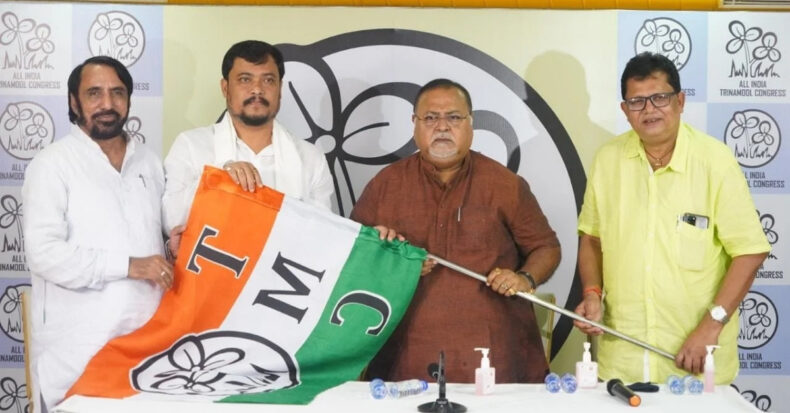Soumen Roy is the third BJP MLA to switch over in the recent five days, and the fourth since the TMC took power for the third time in May following an avalanche triumph in the Bengal gathering races.
Soumen Roy, the party’s MLA from Kaliaganj in north Bengal, joined the Trinamool Congress on Saturday, managing one more hit to the Bharatiya Janata Party in West Bengal.
Others Who Followed the Same Pattern
Mukul Roy, the BJP’s public VP, had gotten back to the TMC prior in June. Tanmay Ghosh, who had as of late won the Bishnupur seat in Bankura locale on a BJP ticket, joined the TMC on August 30.
Biswajit Das, a BJP MLA from Bagda in North 24 Parganas, joined the TMC a day after the fact. Subsequent to joining the TMC, both Roy and Das cautioned that extra BJP lawmakers would stick to this same pattern sooner rather than later.
Why The Change of Heart?
Roy met with Mamata Banerjee and further more met with the party’s public general secretary Abhishek Banerjee.
He stated that due to issues that arose between him and the party not long before the Assembly elections, he had to contest from BJP ticket he expressed that although, he campaigned for office on a BJP ticket, his heart lies with TMC.
He admitted that he was driven off and committed a mistake and apologized to his party. He said he was unable to tolerate the BJP culture and didn’t fit well in the Saffron camp. He returned to the party because he wants to a part of the development in Bengal.
Further, Roy expressed within the sight of TMC general secretary Partha Chatterjee that Bengal was advancing under the leadership of Chief Minister Mamata Banerjee and thus settled to re-join the party.
In the prior the current year’s get together decisions, the TMC had won 213 seats and the BJP had won 77. The party’s solidarity had decreased to 75 individuals after two MLAs would not make the vow and surrendered to keep their seats.
Rising Defection in Indian Politics
Defection is portrayed as either deliberately leaving a political party or resisting the party administration’s headings on a vote in the governing body.
Fixing and tidying up the counter deserting rules is quite possibly the most pressing legislative measure confronting the future Indian government. The anti-defection law has had no effect in the last 35 years.
Nonetheless, it has been fruitful in genuinely debilitating the country’s lawful establishment. It contrarily affects the council’s discussions. It has had a negative impact on the legislature’s debates.
Our politicians are now fearful of retaliation from their political parties if they share their views on laws and policy concerns.
The nonpartisan constitutional office of the Speaker has been pulled into party politics because it is the decision-making authority in anti-defection procedures.












